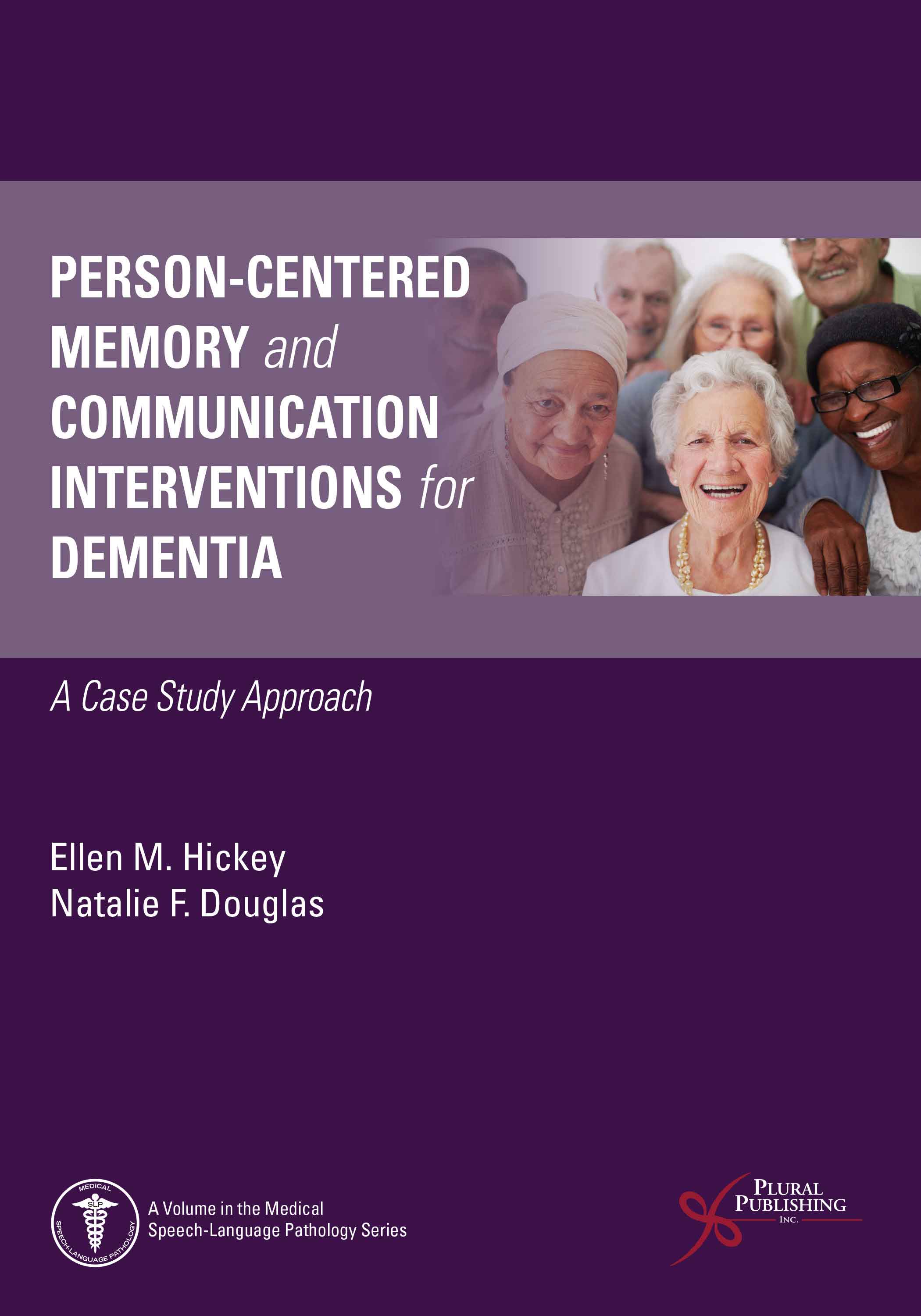
Person-Centered Memory and Communication Interventions for Dementia: A Case Study Approach
First Edition
Ellen M. Hickey, Natalie F. Douglas
Details: 178 pages, B&W, Softcover, 7" x 10"
ISBN13: 978-1-63550-301-2
© 2021 | Available
Purchase
A Volume in Plural's Medical Speech-Language Pathology Book Series
Person-Centered Memory and Communication Interventions for Dementia: A Case Study Approach is the third volume in Plural's “Medical Speech-Language Pathology” book series. It is a practical, peer-reviewed resource for speech-language pathologists (SLPs) working with people with dementia. In this unique text, the authors cover a variety of evidence-based clinical procedures for the memory, communication, and behavioral challenges of people with dementia. The aim is to empower SLPs and other clinicians to implement practices that elevate the personhood of people living with various dementia syndromes.
Throughout this clinician-friendly text, the authors cover three main areas of focus: elevating personhood, the “how tos” of clinical procedures, and the organizational-level barriers and facilitators to implementation. After an introductory chapter, the next eight chapters describe a detailed case study that explains specific person-centered assessment and treatment methods. The cases depict a diverse group of people providing insights into the range of concerns and joys involved in supporting memory and communication in a manner that is culturally responsive and equitable.
Key Features
- The only dementia text that incorporates a culturally responsive approach to cases that reflect the increasing diversity of the aging population
- Specific examples of the “how tos” of person-centered, evidence-based care
- Detailed personal, assessment, and treatment histories for each case, with a table of goals and intervention procedures, as well as illustrations of memory and communication strategies
- Each chapter starts with an “At-A-Glance” section to highlight the person and ends with a summary of key points of the treatment and implementation factors
- Uses a highly readable writing style with boxes, tables, and figures to support the text
- A PluralPlus companion website with additional assessment forms, data collection sheets, photo examples of memory and communication strategies, and functional maintenance plan templates
Natalie F. Douglas Discusses Person-Centered Memory and Communication Interventions for Dementia: A Case Study Approach
Reviews
"This book is SO functional. I love every inch of it. It provides great evidence-based approaches and examples for intervention with dementia in the form of case studies. Definitely a must-have for SLPs working with dementia!"
—Katie Brown, MA, CCC-SLP, CBIS, Speech-Language Pathologist & Owner of Neuro Speech Solutions
“This book presents memory and communication interventions for dementia, focusing on using person-centered care to assist clients by prolonging their quality and/or quantity of life. The website provides resources to spark clients' memory and aid them in completing their daily routines and more.
The purpose is to demonstrate the use of person-centered assessments and intervention for persons with dementia. It shows how to use the life participation approach to put together goals that work specifically for a particular client. The client and the speech-language pathologist establish goals that use strategies to enhance communication skills in ways that are tailor made for them.
The audience is shown the benefits of focusing on life participation with their clients who have dementia. The authors use person-centered tools by working directly with the client to set up the goals that are meaningful for them. In a unique way, the authors begin with a lengthy introduction which describes the process in great detail. After that, 8 case studies are presented and describe the benefit the clients receive by using this approach. The book demonstrates the benefits of focusing on life participation with their clients who have dementia. The authors use person-centered tools, working directly with the client to set up goals that are meaningful for them. The book begins with a lengthy introduction that describes the process in great detail. The authors then present eight case studies and describe the benefit the clients receive by using this approach. This book is very timely. Dementia is becoming more prevalent, and speech-language pathologists are often asked to provide tools that may help clients have a better quality of life. This book does not only that, it also describes real-life situations for families, caregivers, and clients to see what other people with dementia have gone through, and how they dealt with it. I will definitely use this book.”
—Lorelei Peirson, MA, CCC-SLP, Biola University, in Doody's Review (September 2021)
“This book has several strengths. First, the book presents an application of evidence-based practice interventions and approaches that focus on providing a tailored, culturally responsive approach to person-centered dementia care…This 10-chapter book includes an introductory chapter, eight-case-study chapters, and a concluding chapter. The first chapter sets the stage for the eight case studies by describing person-centered assessment and care, culturally responsive practice, evidence-based interventions, healthcare environments, and challenges... This chapter also includes a chart that demonstrates an example of this assessment procedure using the Flip the Rehab Model (Bourgeois, 2014), adapted from the Living with Aphasia Framework for Outcomes Measurement (Kagan & Simmons-Mackie, 2007), a model focusing on patient outcomes…The authors highlight the importance of developing a treatment plan using an intervention method that supports the independence and life participation of individuals with dementia while considering their con-textual factors. This chapter describes evidence-based practices, such as using memory and communication aids, and provides a chart with examples of electronic and nonelectronic external aids... Therefore, in this introductory chapter, the authors guide the reader on how to use the assessment outcomes in developing a treatment plan that includes evidence-based practices that meet regulatory and reimbursements guidelines.
… Each case study includes background information, results of ethnographic approach for person-centered assessment, results of the cognitive-communication assessment, and sample goals for implementing evidence-based person-centered care. All of the case studies utilize the assessment approach Flip the Rehab Model…
Each case-study chapter identifies specific factors that should be addressed when assessing and determining a treatment plan for each person with dementia. The format of the case studies’ depiction highlights the importance of seeing the whole person in a relatable manner…The authors include (a) templates for identifying participation opportunities within daily activities; (b) interview sample questions for each person with dementia and/ or caregivers; and (c) sample artifacts to collect personal information on special items, photographs, or terms of interest.
Each case-study chapter includes charts describing the results of the ethnographic and cognitive/ communication assessments (formal and informal measurements) and swallowing assessments (when applicable). The authors also included a chart with desired outcomes, goals, and sample evidence-based intervention using external memory/ communication aids, space retrieval training, and care partner instruction that supports the needs of each case study. Sample figures included in each chapter highlight the specific needs of the person with dementia. …The authors also provide examples of how to improve the engagement for each person by identifying key personnel and describing their roles within an interprofessional practice approach.
Finally, the authors describe potential barriers to implementation and possible suggestions for addressing these concerns…. Each chapter closes with a summary of their background, diagnosis, intervention process, and barriers to implementation.
…The book is well organized and provides numerous examples of applied memory and communication interventions for ethnically and racially diverse individuals with dementia. The authors acknowledge that the process and approach in providing memory and communication interventions have challenges (in terms of staffing, administration, and fiscal support); however, they inspire hope for the provision of person-centered dementia care.
The final chapter includes a message that empowers future clinicians with this sense of hope. Therefore, this book will inspire new SLPs, health care providers, and caregivers to develop and implement culturally responsive, tailored person-centered memory and communication interventions for persons living with dementia. This book highlights valuable information that can benefit professionals, such as SLPs, nurses, and professors teaching undergraduate and graduate courses in higher education. This book can be used as a primary textbook in courses focusing on dementia. Moreover, this book can also be used as a supplemental textbook for courses focusing on adult cognition and language disorders, adult language disorders, neuromotor speech disorders concomitant with dementia, augmentative and alternative communication, gerontology, interprofessional education and practice, and cognitive assessment and treatment.”
—Manateresa (Teri) H. Muñoz and Ellen Leslie Brown, Florida International University, in Journal of Applied Gerontology (March 2022)
Series Introduction by Kristie A. Spencer and Jacqueline Daniels
Acknowledgements
Contributor
Reviewers
Chapter 1. Introduction
Chapter 2. Elsie, the Nana
Chapter 3. Sylvie, the Entertainer
Chapter 4. Ivan, the Mentor
Ellen Hickey, Rebecca H. Affoo, and Natalie F. Douglas
Chapter 5. Saumya, the Caretaker
Chapter 6. Andre, the Artist
Chapter 7. Michael, the Mindful Yogi
Chapter 8. Sam, the Bocce Player
Chapter 9. Angie, the Pug Mom
Chapter 10. Conclusion
Index
Purchase of Person-Centered Memory and Communication Interventions for Dementia: A Case Study Approach comes with access to supplementary materials on a PluralPlus companion website.
To access the materials, you must register on the companion website and log in using the access code* printed on the inside front cover of your book.
*Note: If you have purchased this textbook used or have rented it, your access code will not work if it was already redeemed by the original buyer of the book. Plural Publishing does not offer replacement access codes for used or rented textbooks.
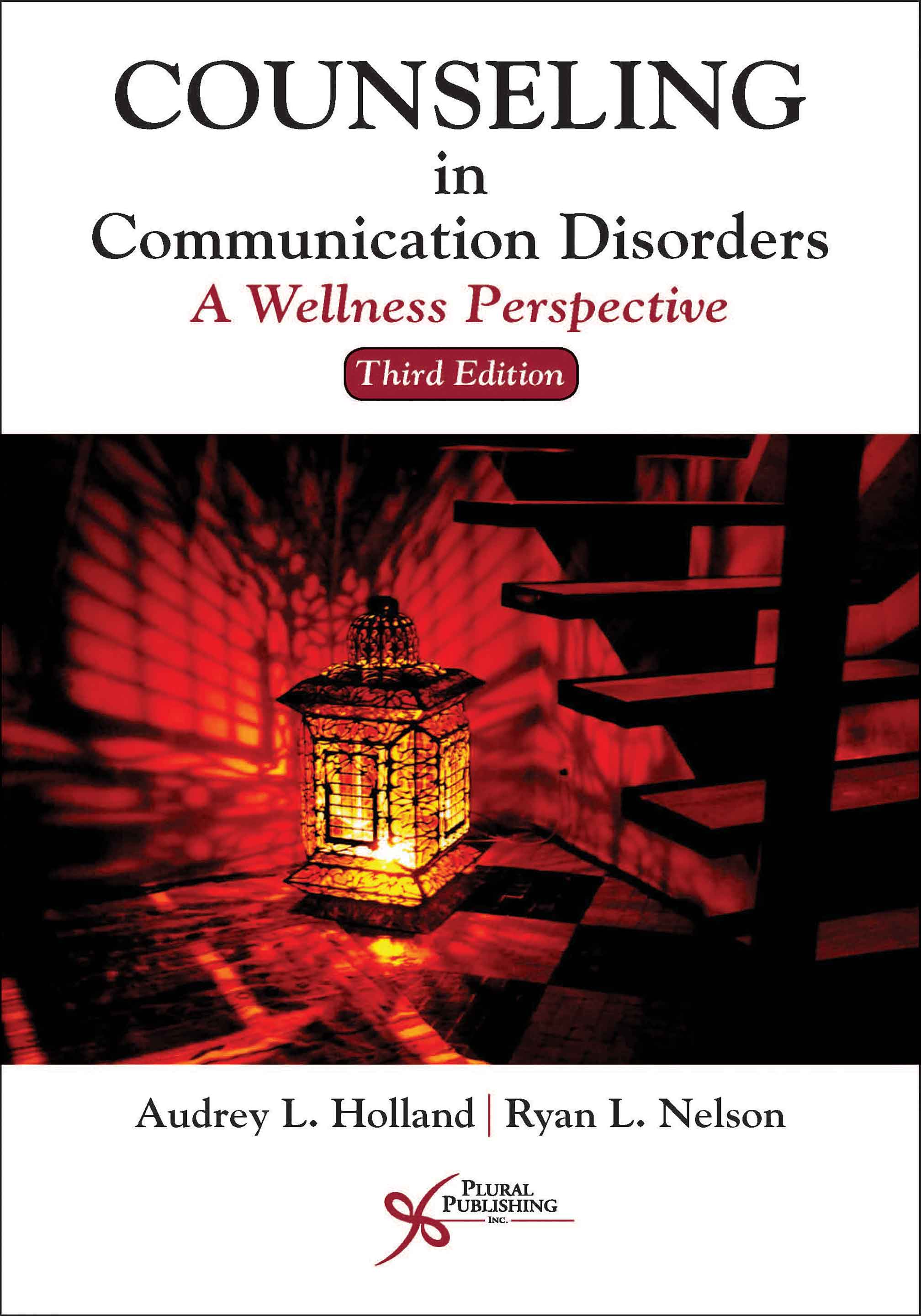
Counseling in Communication Disorders: A Wellness Perspective
Third Edition
Audrey L. Holland, Ryan L. Nelson
Details: 370 pages, B&W, Softcover, 6" x 9"
ISBN13: 978-1-63550-045-5
© 2020 | Available
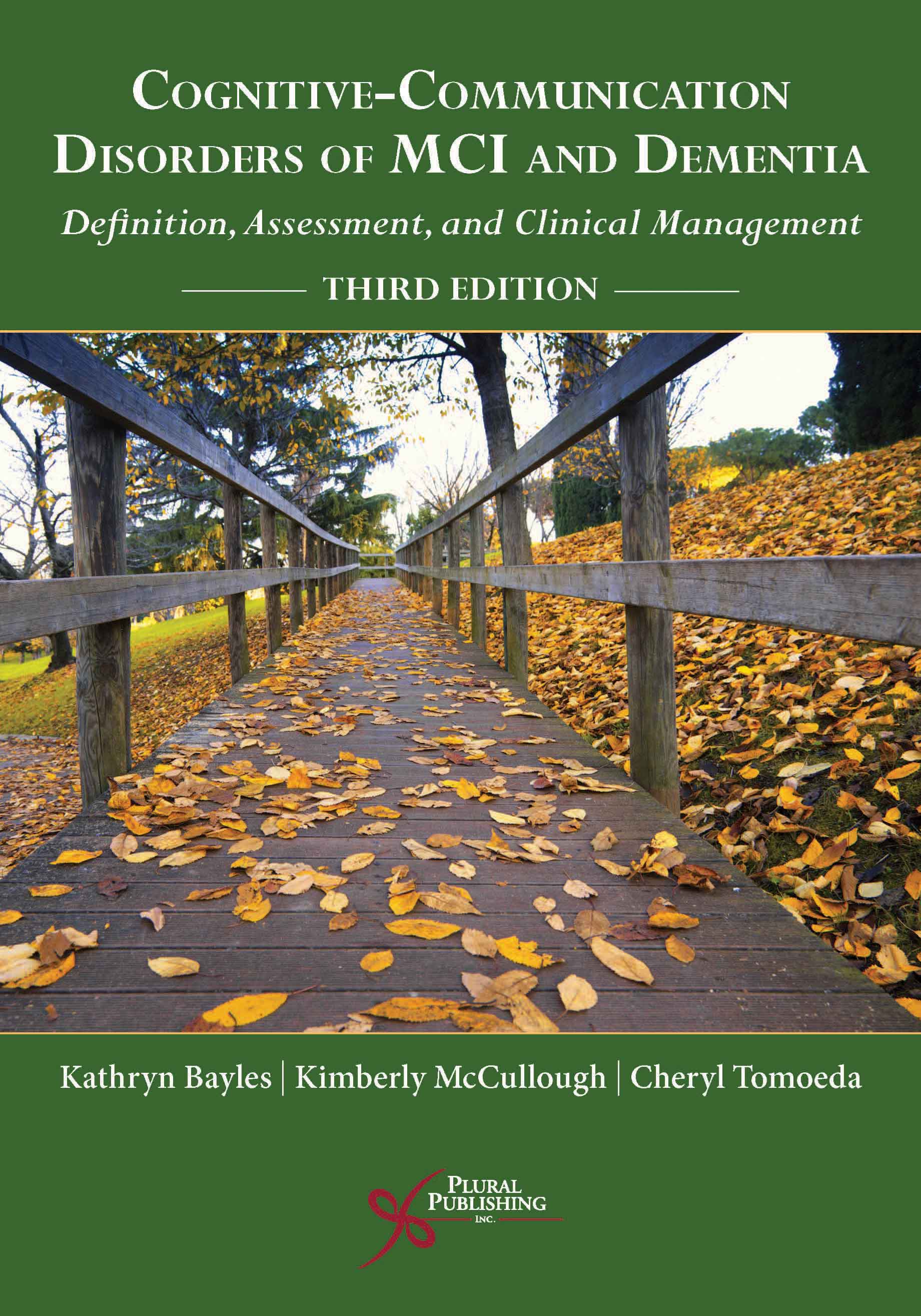
Cognitive-Communication Disorders of MCI and Dementia: Definition, Assessment, and Clinical Management
Third Edition
Kathryn Bayles, Kimberly McCullough, Cheryl K. Tomoeda
Details: 265 pages, B&W, Softcover, 7" x 10"
ISBN13: 978-1-63550-060-8
© 2020 | Available
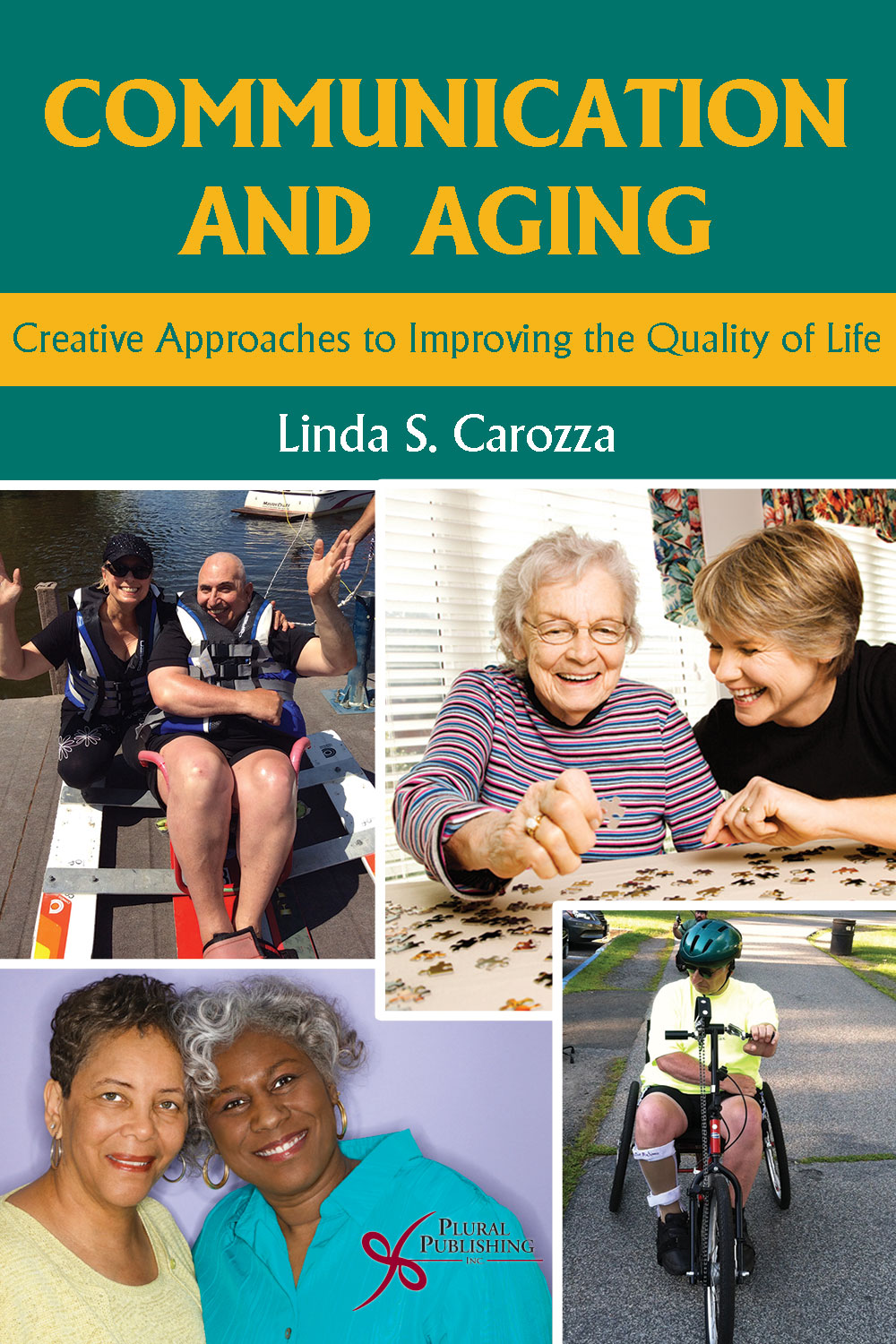
Communication and Aging: Creative Approaches to Improving the Quality of Life
First Edition
Linda S. Carozza
Details: 319 pages, B&W, Softcover, 6" x 9"
ISBN13: 978-1-59756-612-4
© 2016 | Available
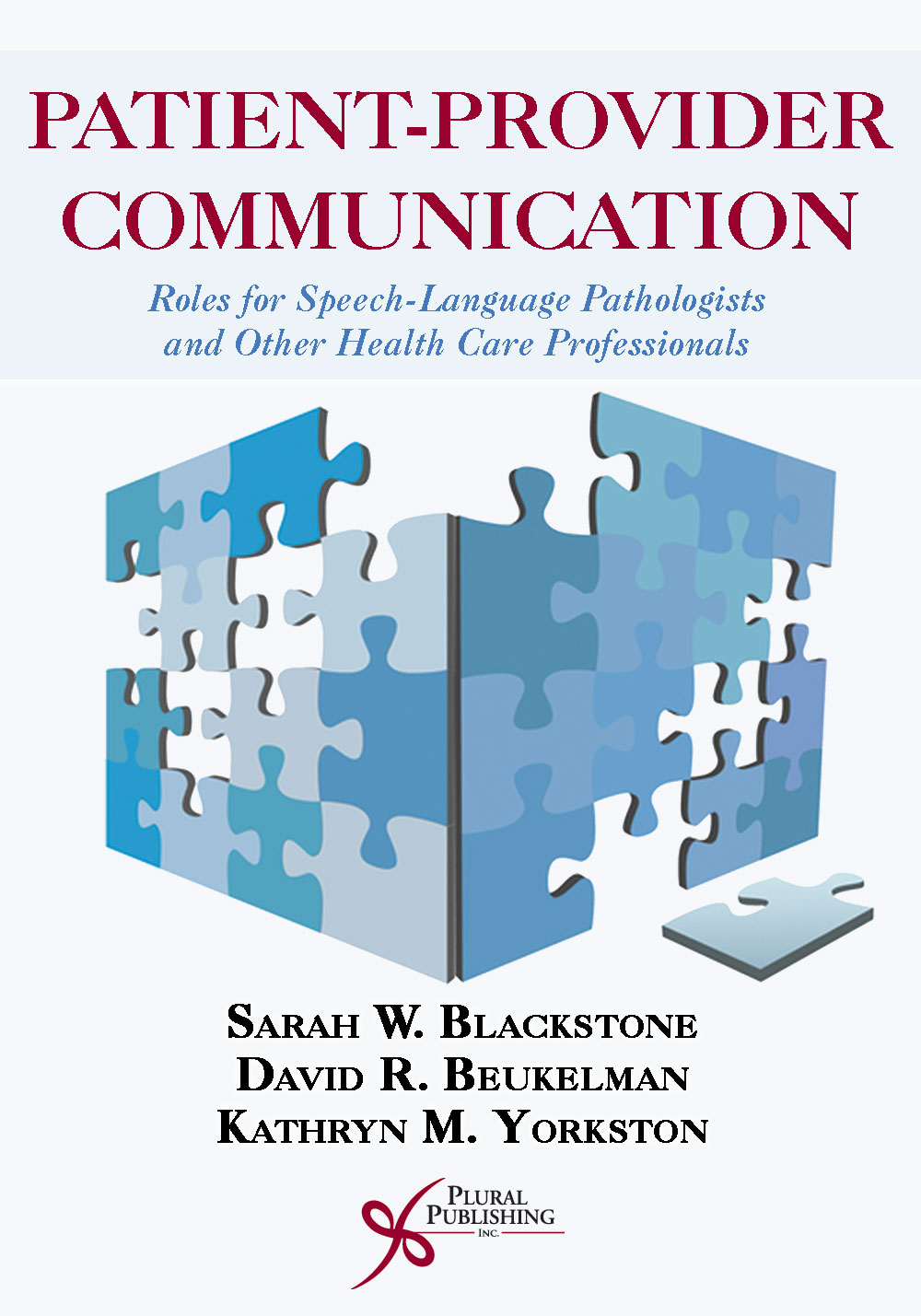
Patient-Provider Communication: Roles for Speech-Language Pathologists and Other Health Care Professionals
First Edition
Sarah W. Blackstone, David R. Beukelman, Kathryn M. Yorkston
Details: 352 pages, B&W, Softcover, 7" x 10"
ISBN13: 978-1-59756-574-5
© 2015 | Available
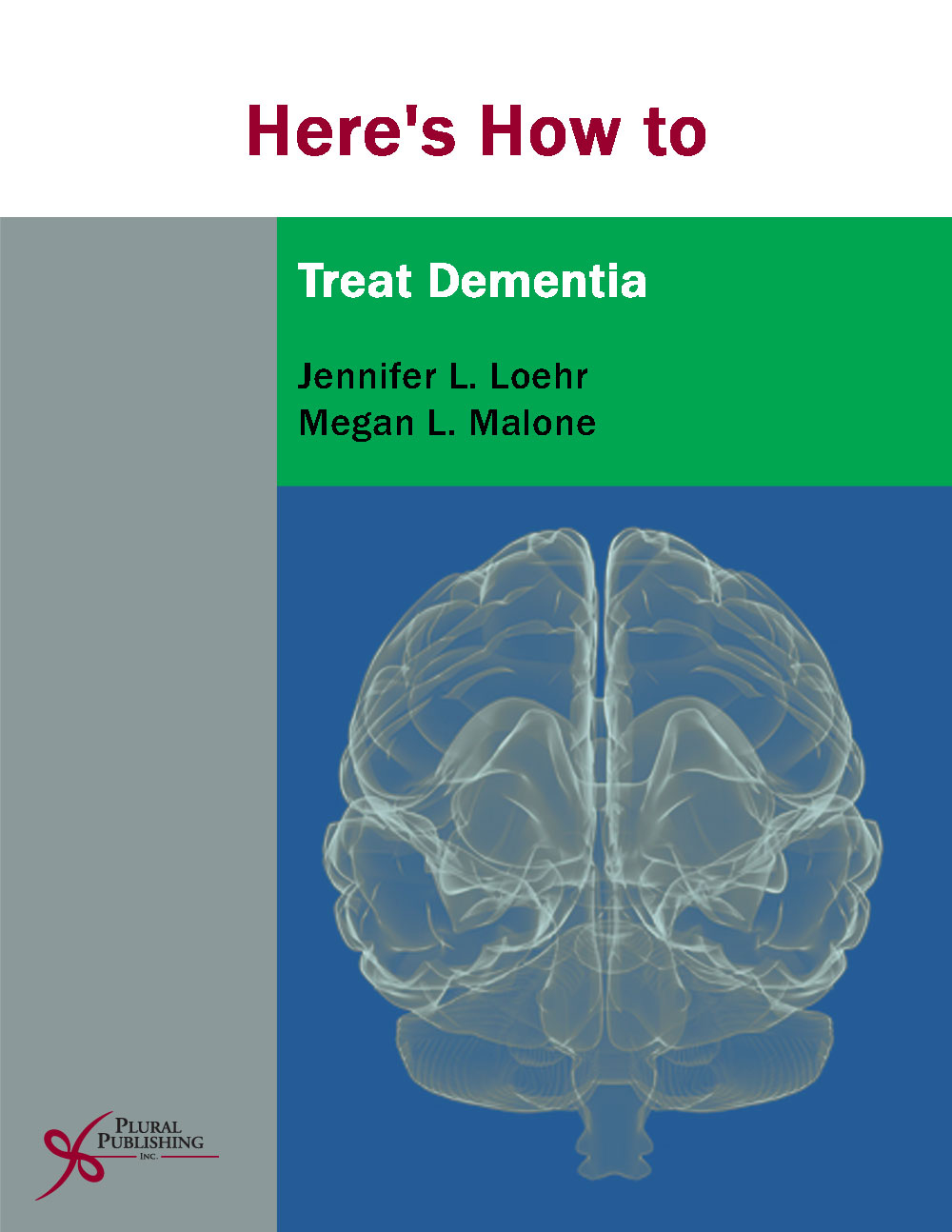
Here's How to Treat Dementia
First Edition
Jennifer L. Loehr, Megan L. Malone
Details: 200 pages, B&W, Softcover, 8.5" x 11"
ISBN13: 978-1-59756-448-9
© 2014 | Available

MCI and Alzheimer's Dementia: Clinical Essentials for Assessment and Treatment of Cognitive-Communication Disorders
First Edition
Kathryn Bayles, Cheryl K. Tomoeda
Details: 232 pages, 2-Color, Softcover, 6" x 9"
ISBN13: 978-1-59756-518-9
© 2013 | Available
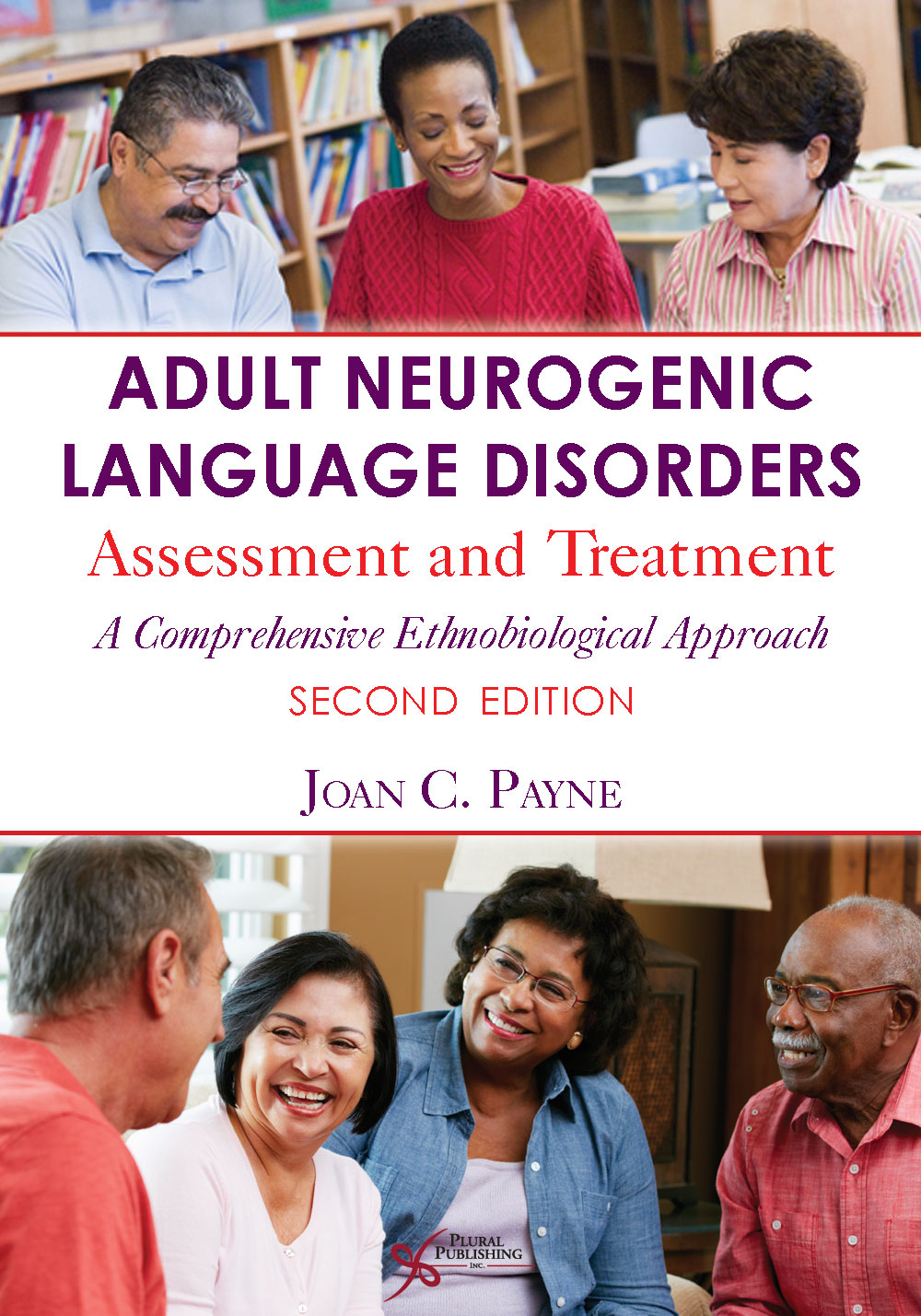
Adult Neurogenic Language Disorders: Assessment and Treatment. A Comprehensive Ethnobiological Approach
Second Edition
Joan C. Payne
Details: 392 pages, B&W, Softcover, 7" x 10"
ISBN13: 978-1-59756-503-5
© 2014 | Available
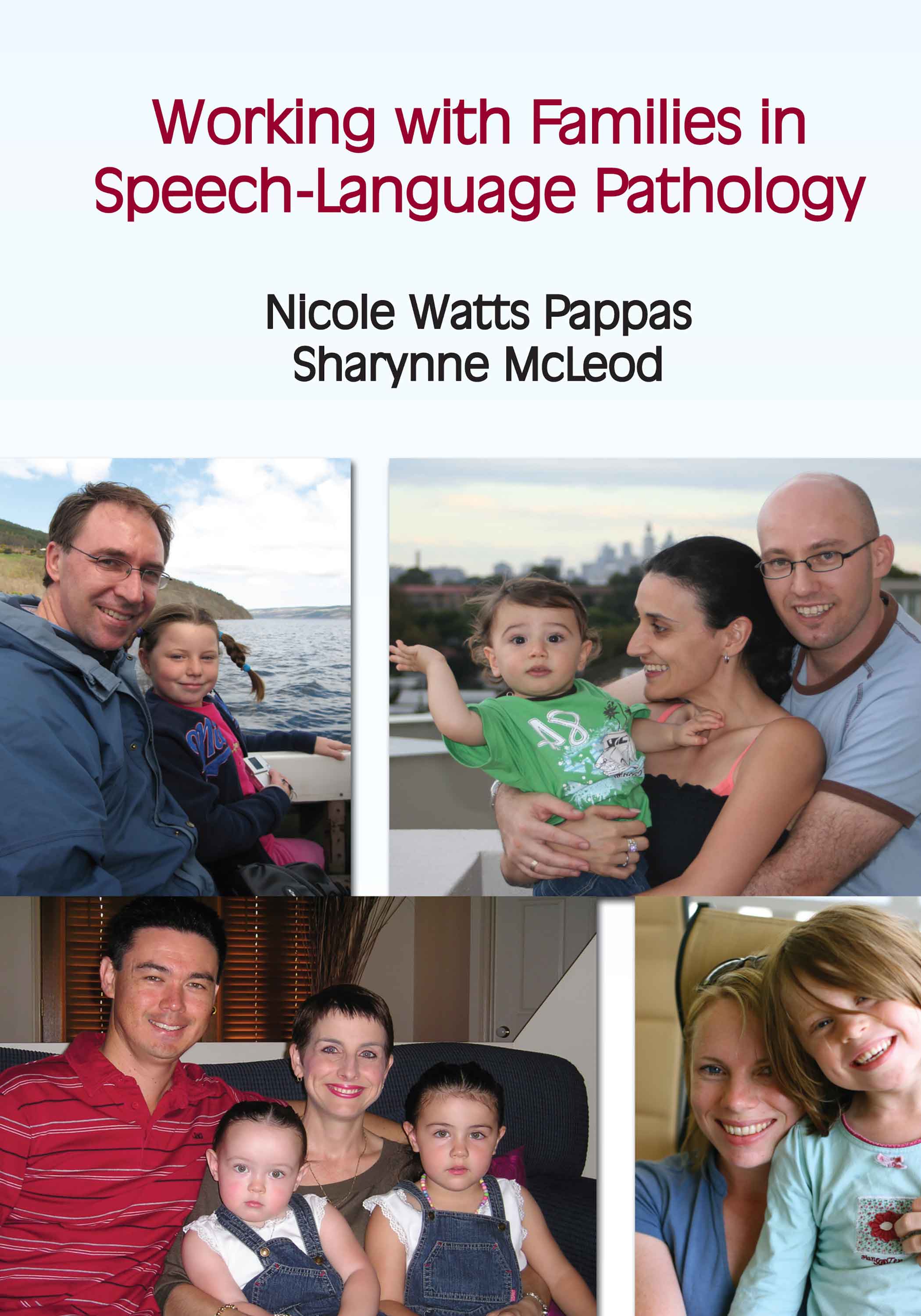
Working with Families in Speech-Language Pathology
First Edition
Nicole Watts Pappas, Sharynne McLeod
Details: 358 pages, B&W, Softcover, 6" x 9"
ISBN13: 978-1-59756-241-6
© 2009 | Available
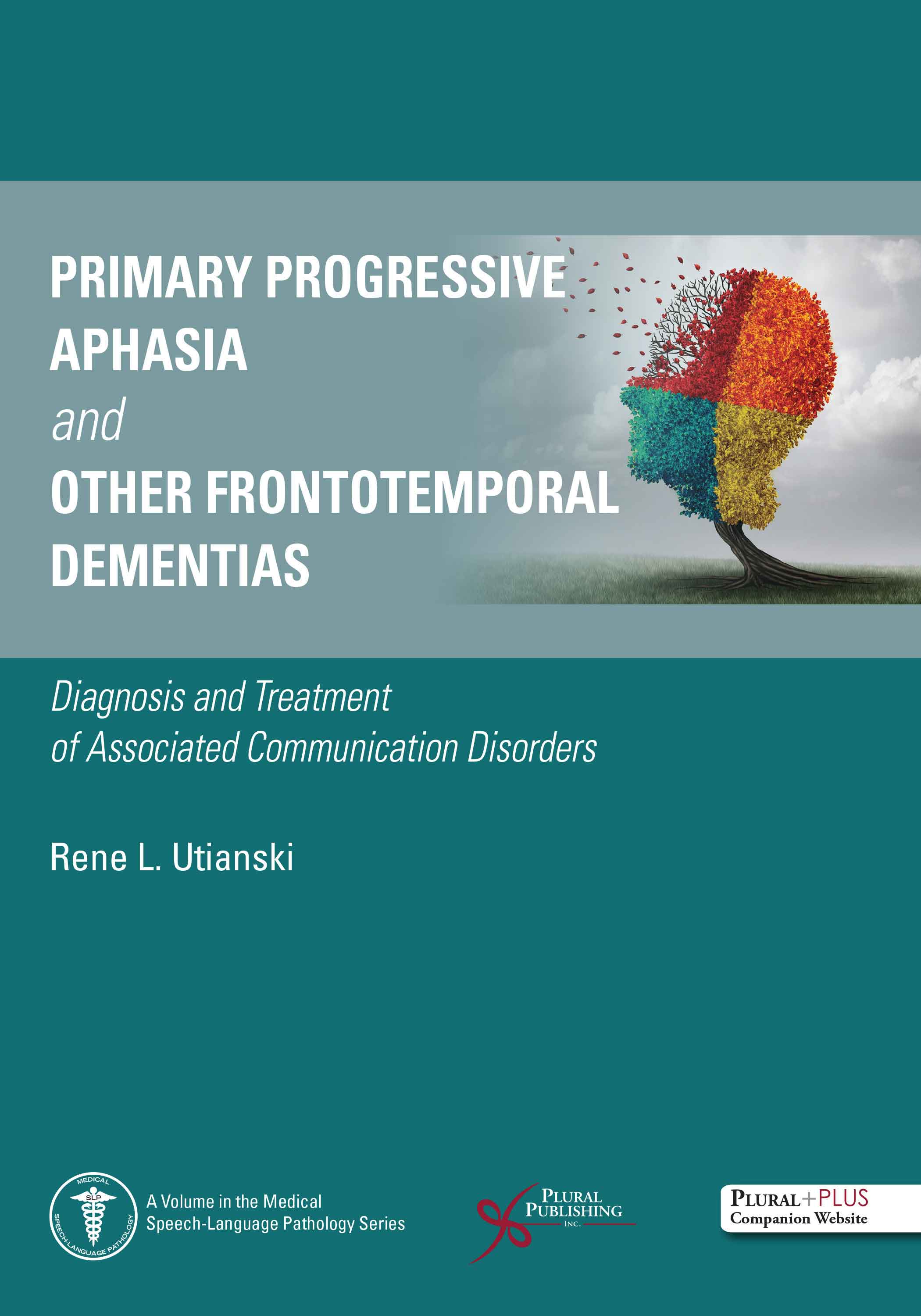
Primary Progressive Aphasia and Other Frontotemporal Dementias: Diagnosis and Treatment of Associated Communication Disorders
First Edition
Rene L. Utianski
Details: 188 pages, B&W, Softcover, 7" x 10"
ISBN13: 978-1-63550-160-5
© 2020 | Available
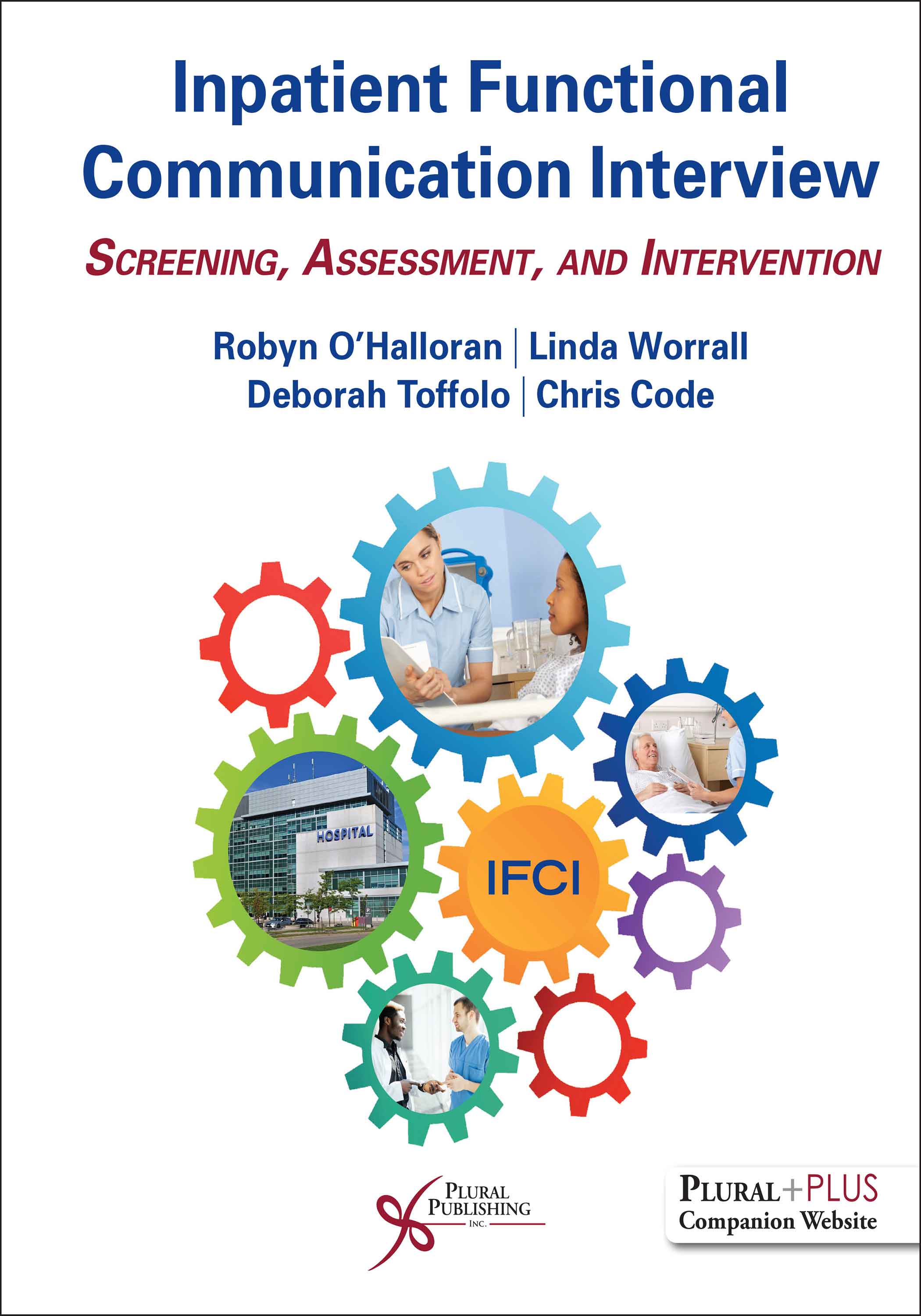
Inpatient Functional Communication Interview: Screening, Assessment, and Intervention
First Edition
Robyn O'Halloran, Linda Worrall, Deborah Toffolo, Chris Code
Details: 170 pages, B&W, Spiral Bound, 8.5" x 11"
ISBN13: 978-1-63550172-8
© 2020 | Available

Neurogenic Communication Disorders and the Life Participation Approach: The Social Imperative in Supporting Individuals and Families
First Edition
Audrey L. Holland, Roberta J. Elman
Details: 242 pages, Softcover, B&W, 6" x 9"
ISBN13: 978-1-63550-295-4
© 2021 | Available
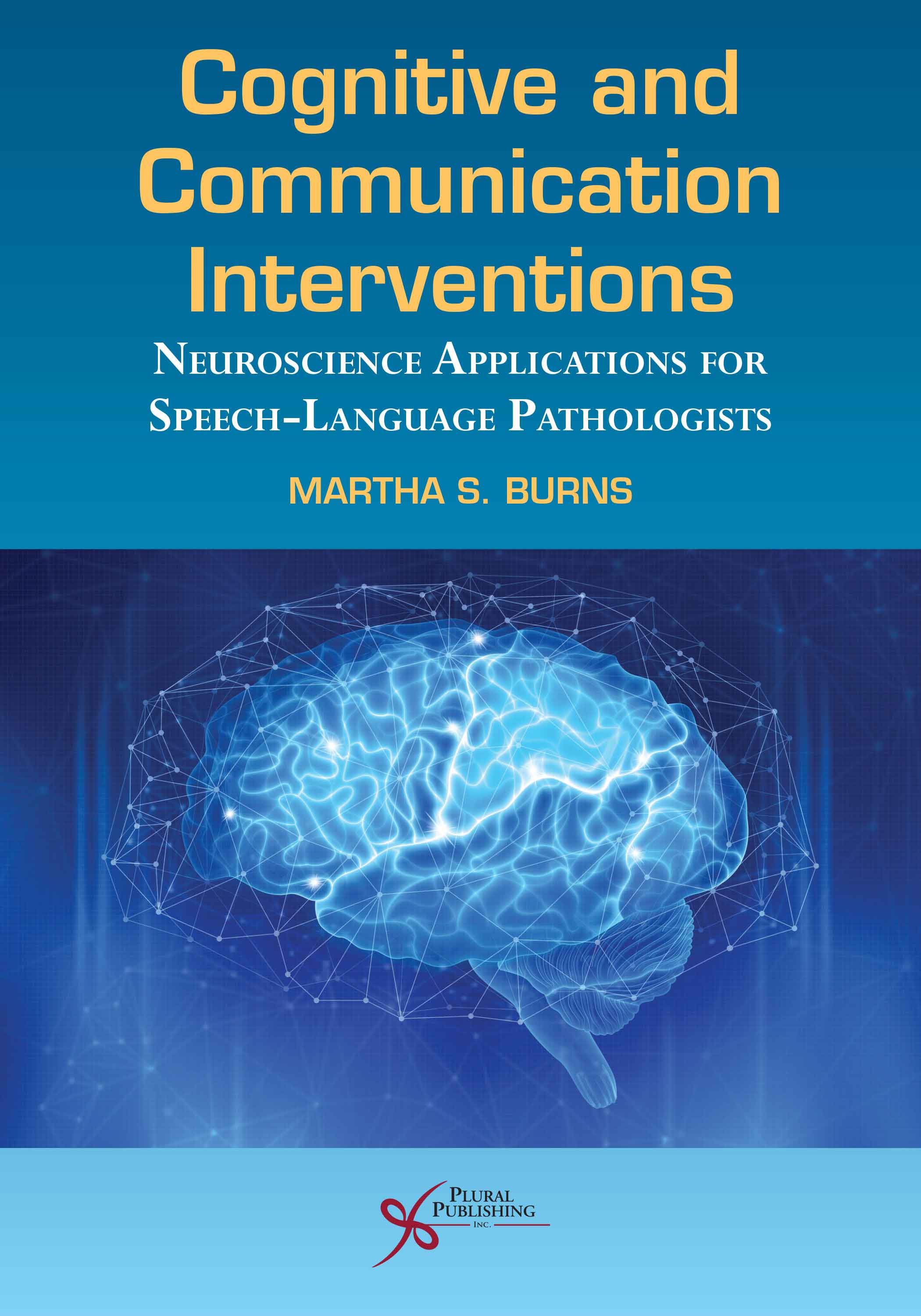
Cognitive and Communication Interventions: Neuroscience Applications for Speech-Language Pathologists
First Edition
Martha S. Burns
Details: 318 pages, B&W, Softcover, 7" x 10"
ISBN13: 978-1-63550-292-3
© 2021 | Available
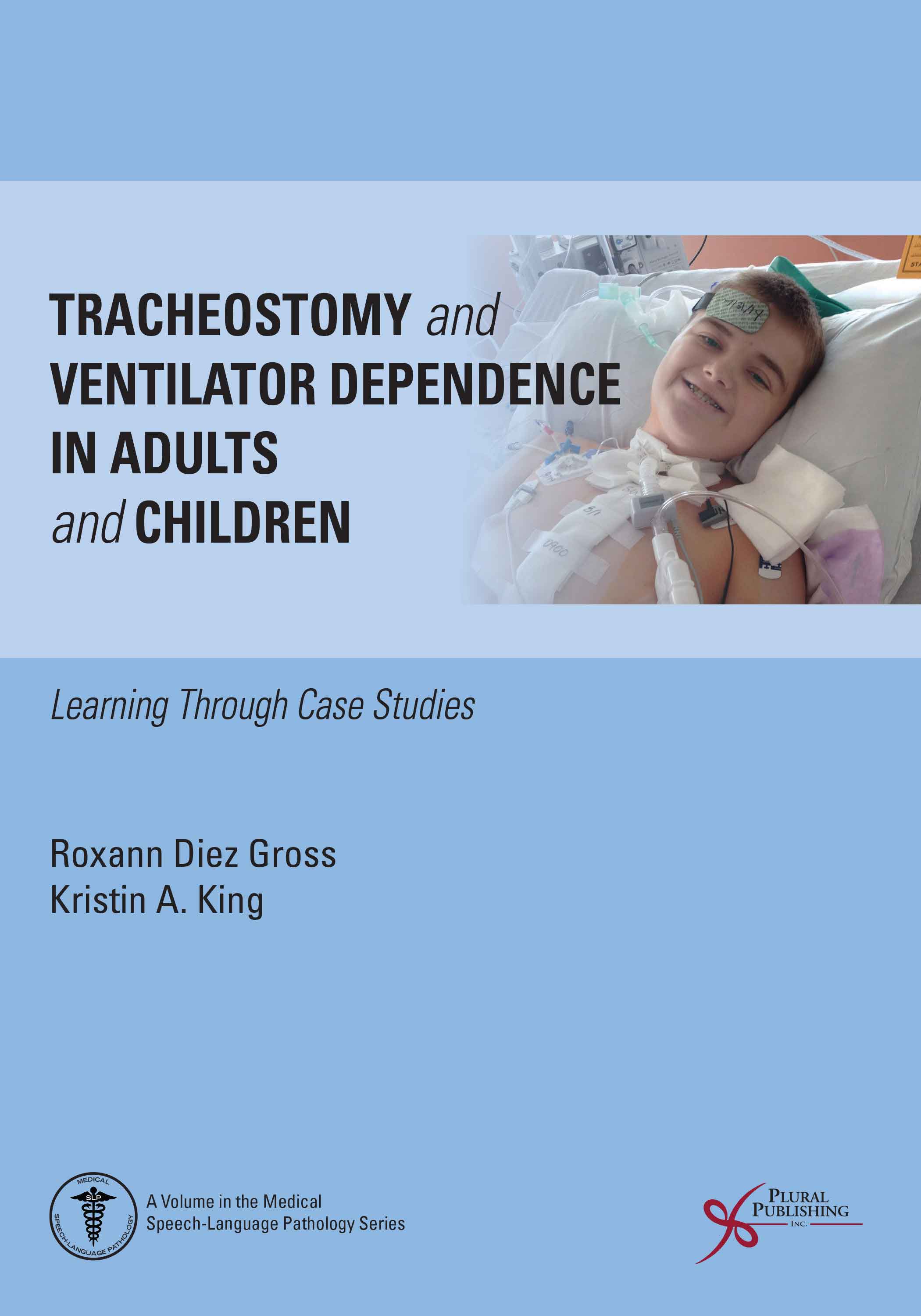
Tracheostomy and Ventilator Dependence in Adults and Children: Learning Through Cases Studies
First Edition
Roxann Diez Gross, Kristin A. King
Details: 271 pages, Full Color, Softcover, 7" x 10"
ISBN13: 978-1-63550-389-0
© 2023 | Available
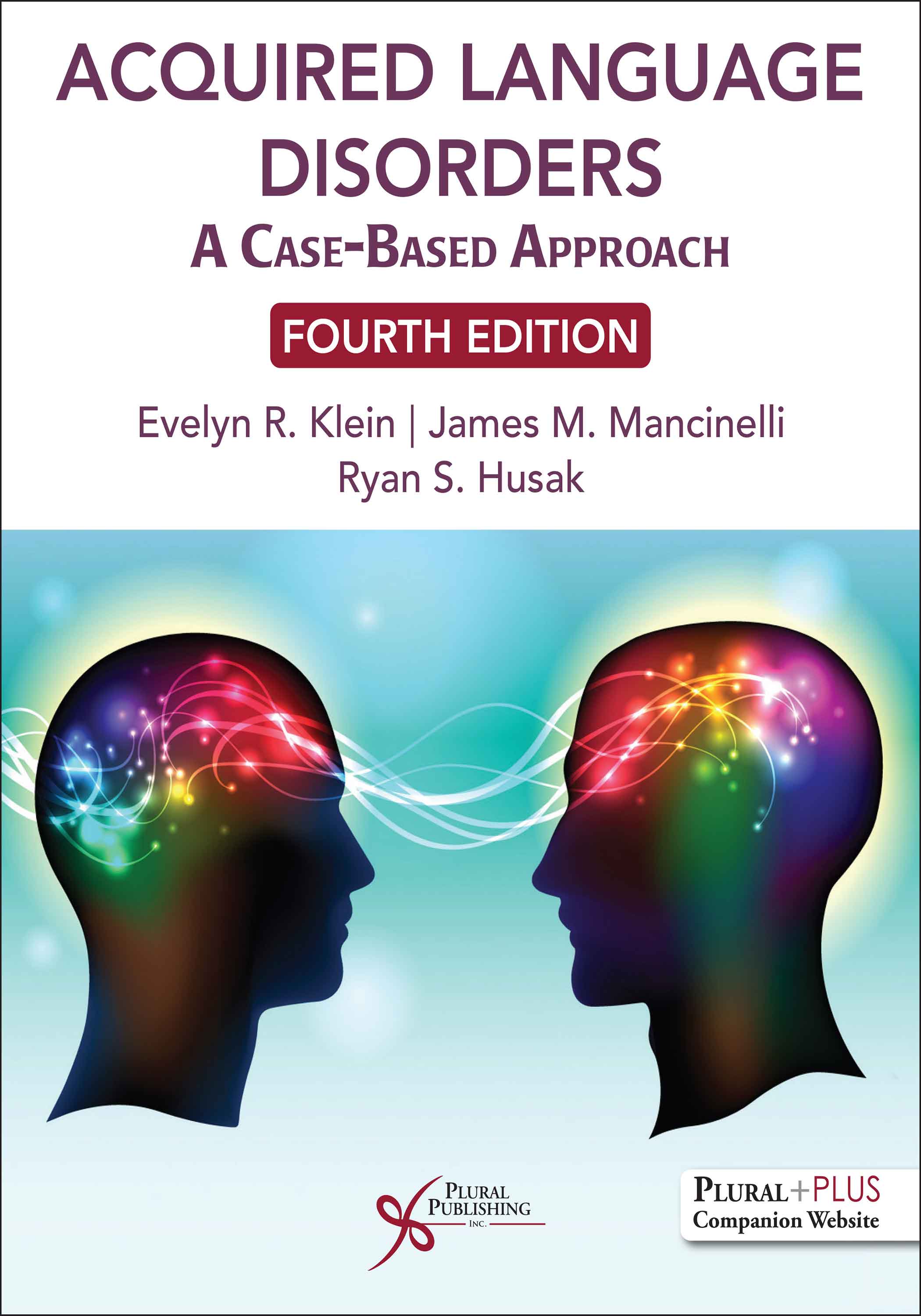
Acquired Language Disorders: A Case-Based Approach
Fourth Edition
Evelyn R. Klein, James M. Mancinelli, Ryan S. Husak
Details: 355 pages, B&W, Softcover, 8.5"x11"
ISBN13: 978-1-63550-700-3
© 2026 | Available
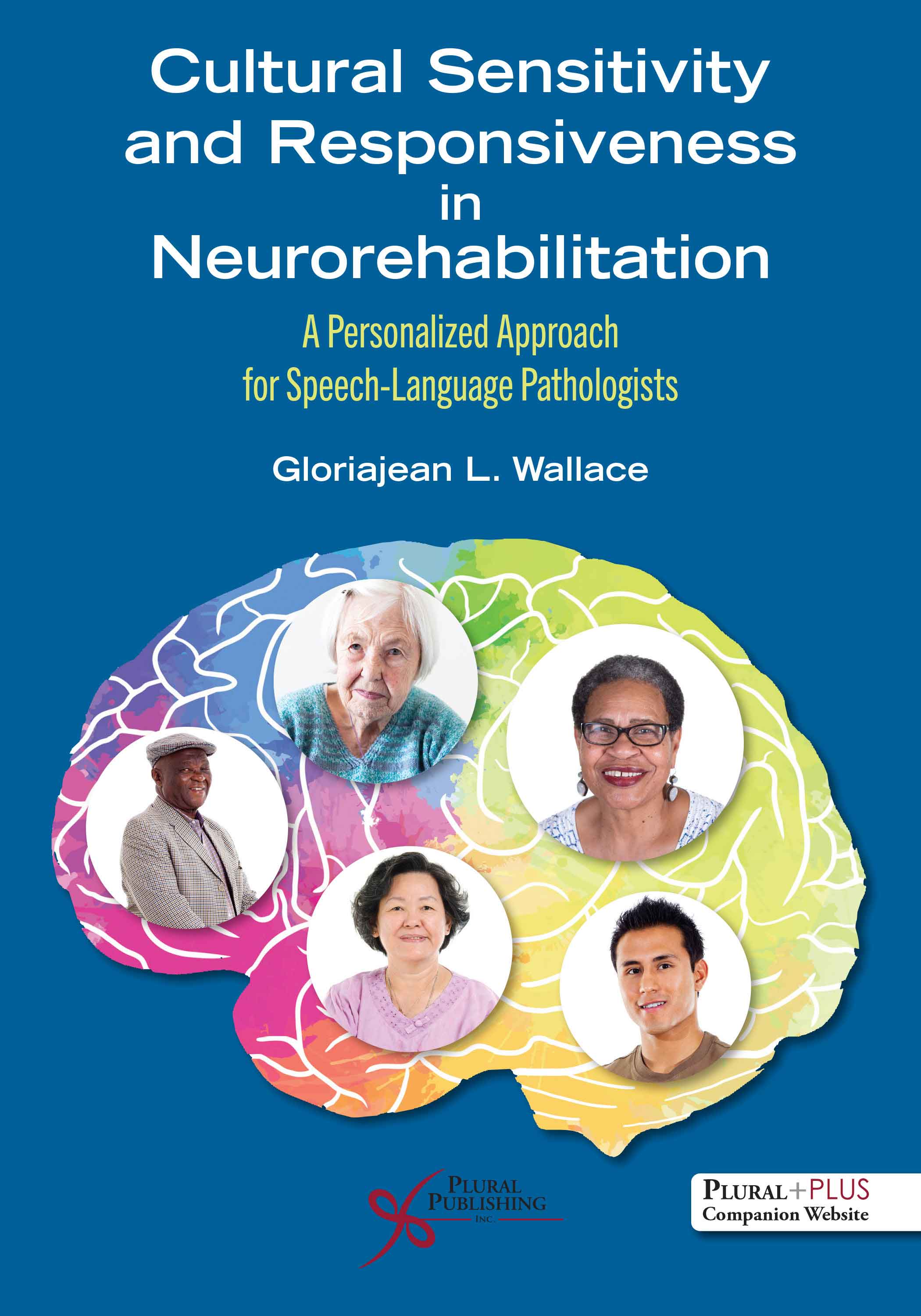
Cultural Sensitivity and Responsiveness in Neurorehabilitation: A Personalized Approach for Speech-Language Pathologists
First Edition
Gloriajean L. Wallace
Details: 853 pages, B&W, Softcover, 7" x 10"
ISBN13: 978-1-63550-032-5
© 2025 | Available


